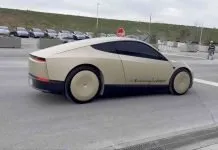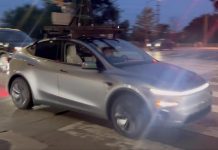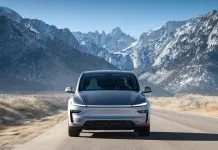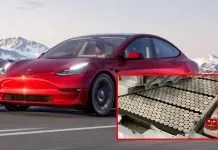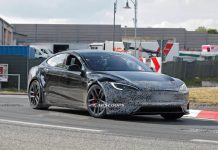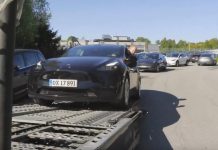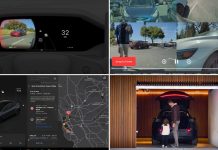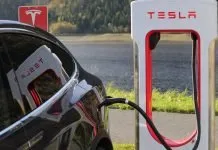Tesla CEO Elon Musk’s decision has been oscillating on his India dream for a couple of years. He is yet to decide whether to enter the Indian automotive market or not.
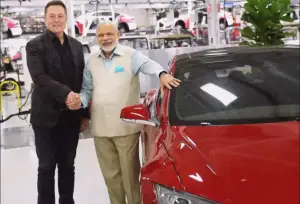 Why Tesla is not in India?
Why Tesla is not in India?
One of many tweets by Musk stated that he would love to operate in India by 2019-2020. According to Musk, the government’s policies and FDI norms are to be blamed for giving up on his India plans. Musk has pointed out that he was told that Tesla couldn’t sell its cars in India because they would need 30% of parts to be locally sourced, which he doesn’t consider to be feasible.
Would love to be there this year. If not, definitely next! ? India ?
— Elon Musk (@elonmusk) March 15, 2019
Tesla was anticipated to enter the Indian market with Tesla Model 3 that sells for nearly $35,000, which is roughly around Rs. 26,50,000 as of June 22, 2020.
Upon entering India, Tesla could start by introducing the Model S and Model X, currently selling in the US for $80,000 (Rs 55 lakh approx) and $85,000 (Rs 59 lakh approx). India levies a whopping 125% duty on imported vehicles. A Tesla in the existing range will end up costing over a crore in India. While we’re all eagerly waiting to see Tesla launched in India, It’s probably better to wait for a more practical solution.
The Indian EV market is meagerly occupied at the moment. The latest contestant is the Hyundai Kona EV, tagged at Rs 25.30 lakh (ex-showroom). Other prominent models in the market include the Tata Tigor EV, Mahindra eVERITO, and the Mahindra e2o. Maruti Suzuki also promises to offer an electric version of Wagon R in the coming year.
In order to limit the carbon emissions in this growing economy, India is looking forward for ways to convert its full fleet to be electric vehicles only. In this direction, India is focusing on small and cheap EVs, preferably the ones that are made in India hence attracting Tesla could face long delays to help achieve their goals.
India’s Transport and Highways Minister, Nitin Gadkari, has visited the Tesla factory at its Fremont factory. This visit was primarily about the introduction and observing an increase in the adoption of pollution-free road transport, focussing on commercial and public vehicles.
The Confusion: The difference between selling vehicles and manufacturing vehicles in India
Import duty on cars in India
The commerce and industry ministry tweeted that the policies regarding foreign direct investment (FDI) would actually allow Tesla to sell, but it seems that there is a condition that they have to manufacture in India as well.
I’m told import duties are extremely high (up to 100%), even for electric cars. This would make our cars unaffordable.
— Elon Musk (@elonmusk) August 1, 2019
While it’s not utterly comprehensible, it can be assumed that there wouldn’t be any sourcing necessities on parts as long as the vehicles would be actually assembled in India. This way the Indian government has many times tried to convince Tesla to establish a manufacturing facility in the country. Tesla has previously announced that they wish to declare locations for up to 4 new Gigafactories, so there are probabilities that India can be a probable candidate. Now after Covid19, countries all around the world are disassociating themselves from China so there is a big possibility that the primary production can be shifted from China to India.
.@elonmusk With respect to news reports on launch plans of Tesla in India being delayed, please note some key clarifications#MakeInIndia pic.twitter.com/9RFICGM9Kk
— Make in India (@makeinindia) May 23, 2017
India’s electric vehicle ownership remains low
Another big reason is that there is no such infrastructure base to develop the grid for powering electric cars throughout the country. Owning and running an electric car in India is limited to Metro cities and other big cities only. To give a satisfactory experience for electric cars a lot of work has to be done.
Electric vehicle charging infrastructure in India
A huge network of charging stations would be required to be installed throughout the vastness of the nation. Though there are a few electric cars available in India but they mostly run in metro cities with a handful of charging stations for them. For Tesla, it would be a very big challenge to single-handedly develop the charging infrastructure and it would cost a lot. It could become fairly easy if automakers and other players in the Electric vehicle segment come together and work towards a common goal of developing this infrastructure.
EVs comprise under 1% of total vehicle sales in India hence with such low earnings from buyers, automakers would not find it feasible to be the first one to invest in setting up charging stations as in future other automakers will reap the benefits of their share as well.
The country is now looking forward to promoting the idea of EVs, the government has targeted 30% electric mobility by 2030. In an attempt to cement their vision, the Indian government brought down the goods and services tax for EV components from 12% to 5%. Also, it has reduced the tax on EV chargers from 18% to 5%.
Issues with India’s policies, tax, and infrastructure
Tesla’s model of business is to import vehicles and sells them in the market in a country outside the US and further they pay in part for the local factory by selling cars there ahead of time. This provides them a sense of demand. However, taking up this model in India may not work as Tesla’s vehicles could be unaffordable because of their high prices.
India’s push towards EVs
To push the adoption of EV’s in India, the country has started manufacturing large factories to make lithium-ion batteries, which the company mostly imports. This will bring down a major fraction of the cost of owning an EV. This high ownership cost has been a significant hurdle in boosting their adoption in India.
India to build Tesla-inspired factories
Reports tell that EV manufacturers have shown interest in India’s plan to develop factories for EV. Estimates show that India would need six facilities of 10-gigawatt hours each by 2025 and 12 by 2030. India is reportedly supporting EVs to bring down on expensive crude oil imports and reducing pollution.
Tesla’s launch in foreign markets (Tesla Gigafactory India)
Tesla has been launching its products in various Asian markets. This was it can expand on its buyer base and predict future demands. Looking at the current scenario it is very probable that Tesla would need another Gigafactory other than the one in China. Now, with the expectations of withdrawing the operations from China, India’s chance to be the center for Asian production hub has increased decisively.
Tesla owners in India
Mukesh Ambani (Tesla Model S 100D)
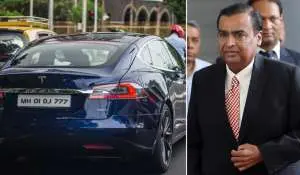
The richest man in the country owns the best luxuries available in the country. He owns the world’s most spacious house, Antilia, which has a garage with space for over 168 cars. Among his car collection he owns Rolls Royces, Bentleys and Mercedes and the mentioned Tesla Model S.
Cost: ₹1.5 crores (Including tax in India)
Riteish Deshmukh (Tesla Model X)
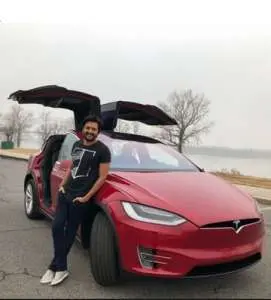
For the actor’s 40th birthday, Riteish Deshmukh was gifted this red Tesla Model X, making him the only Bollywood star to own this beastly beauty. Although this car is kept in a foreign location bus has an Indian owner, which is enough for it to be included on this list.
Cost: ₹2 crores (including tax in India)
Prashant Ruia (Tesla Model X)
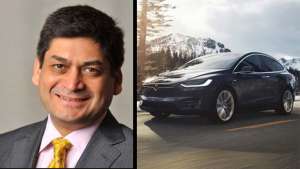
Prashant Ruia, the CEO of the Essar Conglomerate, is the first person to own a Tesla in India. He owns a cool blue color Model X painted, this car was privately imported in 2017.
Cost: ₹2 crores (including tax in India)
Pooja Batra (Tesla Model 3)

The second Bollywood star to own a Tesla is Pooja Batra. However, she owns it in Los Angeles, which excludes her from paying the heavy import duty.
Cost: ₹25 lakh to ₹40 lakh (in the USA)

